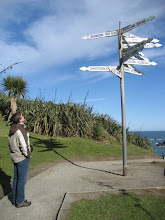I need to have healthy diet and exercise (although there appears to be more consensus on the latter). I'd like to have the metabolism of my last decade. The various contrary opinions confuse me, however. Which diet would be best for me?
Imagining that it would be better to have some plan than none at all, I selected the diet in a book my doctor recommended to me during a recent routine checkup: The Omega Diet: The Lifesaving Nutritional Program Based on the Diet of the Island of Crete by Artemis P. Simopoulos, M.D. The American Heart Association Dietary Guidelines: Revision 2000 has some similarity to this diet.
The Omega Diet, based on the traditional diet of Crete, attempts to mimic the characteristics (particularly the ratio of omega-6 to omega-3 essential fatty acids) of the diet on which human beings evolved. Below are "The Seven Dietary Guidelines of The Omega Diet":
I conclude with a sample day on the Omega Diet (not including healthy snacks ):
- Eat foods rich in omega-3 fatty acids such as fatty fish (salmon, tuna, trout, herring, mackerel), walnuts, canola oil, flaxseeds, and green leafy vegetables. Or, if you prefer, take omega-3 supplements.
- Use monounsaturated oils such as olive oil and canola oil as your primary fat.
- Eat seven or more servings of fruits and vegetables every day.
- Eat more vegetable protein, including peas, beans, and nuts.
- Avoid saturated fat by choosing lean meat over fatty meat (if you eat meat) and low-fat over full-fat milk products.
- Avoid oils that are high in omega-6 fatty acids, including corn, safflower, sunflower, soybean, and cottonseed oils.
- Reduce your intake of trans-fatty acids by cutting back on margarine, vegetable shortening, commercial pastries, deep-fat friend food, and most prepared snacks, mixes, and convenience food.
Breakfast
- 1 bagel
- 2 oz lox (cold-smoked salmon)
- 2 T low-fat cream cheese or 3 T low-fat cottage cheese
- Tomatoes, sliced onions, or capers
- 8 oz. juice
Lunch
- 2 cups vegetable soup
(Hot and Sour Soup) - 5 crackers (nonfat or canola-based)
- 1 cup mixed green salad with 2 T olive oil vinaigrette
Dinner
- Lean burger
(5 oz. lean meat or veggie patty, 1 whole-wheat hamburger bun or roll, 1 T. canola oil mayonnaise, lettuce and tomato) - 3/4 cups cooked carrots marinated in 1 T. olive oil vinaigrette (served cold)

6 comments:
Hi William!! The Omega Diet eh? I read that book a long time ago -- I read some books by Barry Sears which are similar -- The Zone, the OmegaRX zone etc... Lots of people began to talk all at once about balancing omega 3 fatty acids with omega 6 fats. He's one of the ones who got on that bandwagon.
Welcome to the confusing world of Nutrition!
You know what I think. Let me know what you discover.
-Walt
1400 Calories total for a day??? That is most assuredly not enough.
I can't stress it enough, either -- exercise! I've been losing weight lately, and I'm hardly trying. As long as you're active and eating well, you should lose.
Here's what I've had today:
1 boiled egg
1/2 banana
tea
1/2 apple
plum
8 baby carrots
pumpkin flax muffin
coffee
cooked chicken w/ veggies and flax seed
romaine & pear salad with raspberry vinaigrette
ice cream with a little peanut butter
I've also found that cutting back on grains (no, not carbs) helps with weight-loss. However, all people are different. I'm a fast-oxidizer, so this works for me. If I were you (I'm guessing you're a slow-oxidizer), I'd try South Beach.
Repeatedly, I hear in my Nutrition classes, "It's not about cutting out macronutrients or food categories altogether; it's about reducing intake and increasing output -- less food, more exercise!"
If you e-mail me, I can send you a neato formula for determining a healthy range of intake so that you're not reducing your intake by too much, and an exchange calculations chart. Oi, and all sorts of extra fun things. There's too much to say and it's getting late.
Miss you!
Walt:
I think Dr. Artemis Simopoulos is a "she" not a "he". I imagine you think similarly to Sally Fallon, who gave the book a thumbs down.
Roshelle:
The 1400 calories in the meals isn't the total for the day. This was an example, "(not including healthy snacks)". While I remember the healthy snack options I had available, I don't remember which I actually ate.
The Seven Dietary Guidelines of The Omega Diet":
Eat foods rich in omega-3 fatty acids such as fatty fish (salmon, tuna, trout, herring, mackerel), walnuts, canola oil, flaxseeds, and green leafy vegetables. Or, if you prefer, take omega-3 supplements.
Use monounsaturated oils such as olive oil and canola oil as your primary fat.
Eat seven or more servings of fruits and vegetables every day.
Eat more vegetable protein, including peas, beans, and nuts.
Avoid saturated fat by choosing lean meat over fatty meat (if you eat meat) and low-fat over full-fat milk products.
Avoid oils that are high in omega-6 fatty acids, including corn, safflower, sunflower, soybean, and cottonseed oils.
Reduce your intake of trans-fatty acids by cutting back on margarine, vegetable shortening, commercial pastries, deep-fat friend food, and most prepared snacks, mixes, and convenience food.
Post a Comment